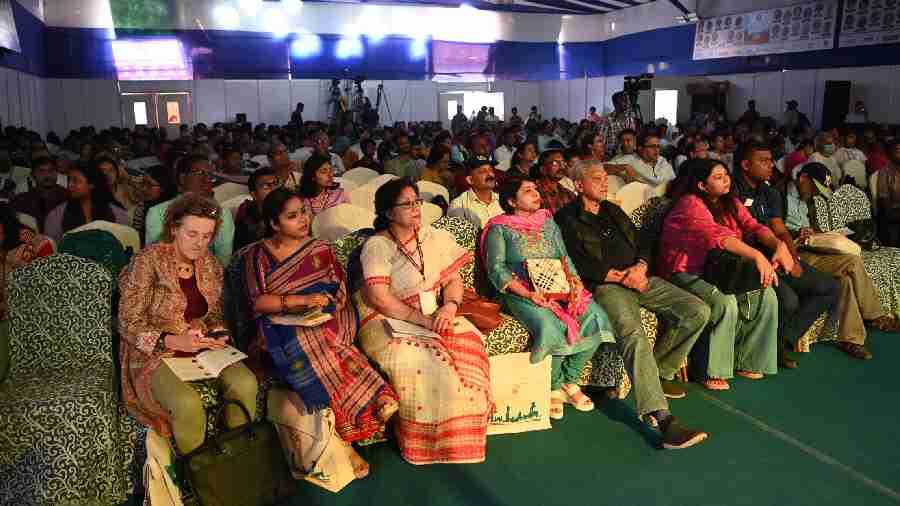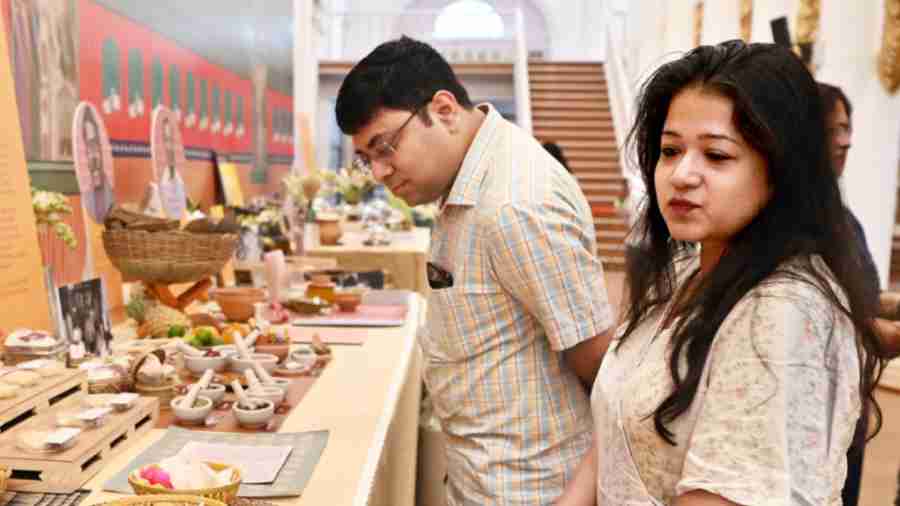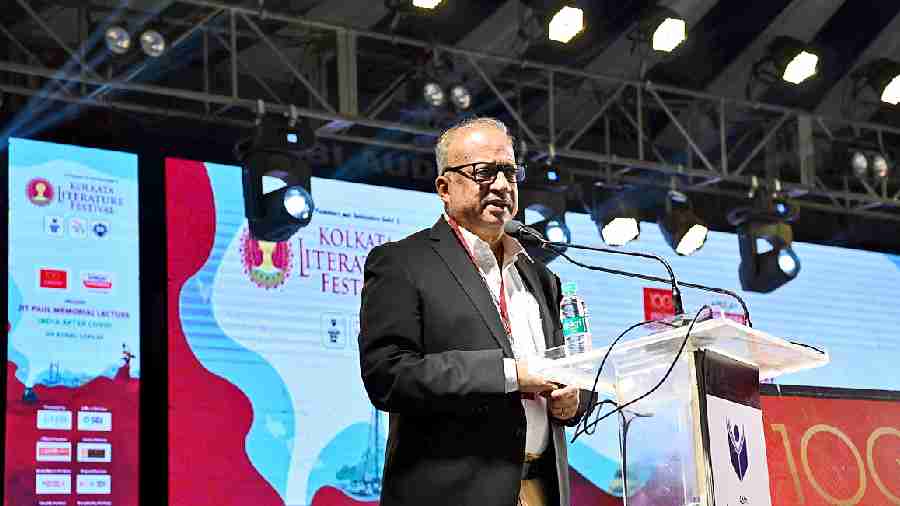India’s experience of Covid was like India’s experience of Partition, a doctor-debater told a lit meet audience at the Kolkata Book Fair on Saturday.
Kunal Sarkar, cardiac surgeon, drew the parallel to highlight the economic devastation triggered by the pandemic.
Many people died during Partition and many more were robbed of their livelihood.
More than seven decades later, when number crunchers were splitting hairs on the Covid death toll, they often ignored the economic deprivation, Sarkar said at the Kolkata Literature Festival, held in association with The Telegraph.
“There is very little difference between India’s experience of Covid and India’s experience of Partition. Today, if you say that between five and seven lakh people died during Partition, you will also have to admit that around two crore people faced absolute economic deprivation because of that process. What Partition did to India in 1947, Covid did to India in 2020 to 2023,” cardiac surgeon Sarkar said at the Kolkata Literature Festival, held in association with The Telegraph.
The Indian economy was already shaky and the pandemic made it much worse.
Joblessness skyrocketed because of the staggering impact of the lockdown restrictions in the country, which were imposed to curb the spread of the deadly coronavirus.
The Covid threat seems as good as gone now but many people, both in the organised and unorganised sectors, have yet to earn what they did before Covid struck.
“We doctors, when we spent night after night (during the peak of Covid) at critical care units, when we treated ventilated patients, ECMO patients, our efforts were accompanied by a sense of guilt. The healthcare bills handed over to many families were more than perhaps five to 10 years’ earnings for many families... How many families have Covid crippled financially in India? We have no estimate,” Sarkar told a packed auditorium at the KLF.
The founder of the Calcutta Debating Circle and the author of The Sickness of Health, a book that traces the journey of healthcare in India, delivered the Jit Paul Memorial Lecture at the ninth edition of the festival, which ended on Saturday.

The audience at the event.
He called out the Centre’s untimely declaration of victory over Covid.
“After the first wave, all of us, especially the central government of India, started celebrating that we had conquered Covid. In Delhi, some people had apparently bought a tract of land to build a monument to India’s victory over Covid.
“On January 28, 2021, our Prime Minister announced to the world that India has conquered Covid. Right at the same time, unnoticed by the political hierarchy and socalled public health experts of India, in the district of Amaravati in Maharashtra, a deadly variant was growing, it was called the Delta variant,” he said.
The Delta variant of SARSCoV2 was behind the deadly second wave in the country that killed thousands and infected lakhs from March to May 2021.
Sarkar lamented that Indian policymakers learnt little from the Covid experience. Government spending in public healthcare is insufficient, he said.
“How is India going to answer another pandemic... This year’s (Union) budget is like a Rubik’s cube. In this year’s budget, the allocation to public healthcare has probably gone down rather than up. That is how we are responding,” he said.
Despite all odds, India managed to overcome the pandemic because of the young healthcare workers, starting from the nurse to the ambulance driver, said Sarkar.
LITERATURE FESTIVAL ON MISHTI

Picture by Sanat Kr Sinha
The first mention of mishti (sweet) could be found in the Rig Veda, said a speaker at a two-day literature festival on sweets (Mishti) that started at the Town Hall on Saturday.
Different from other festivals where people merely come to consume sweets, the one at Town Hall had discussions around origins of sweets, the health aspects of consuming sweets, the culinary legacy of sweets, the gender and caste realities in the industry. There will be a workshop on Sunday on how to make sweets. Lahana Ghosh, a co-owner of Jugal’s and the organiser of the festival, said: “There is very little discussion on the sweet industry, which is an unorganised sector. I want academics and others to provide solutions to challenges that the industry faces. I want people to write about the industry. This festival has been organised to promote more discussion around the sweet industry,” she said. The festival will continue between 2.30pm and 9pm on Sunday.
